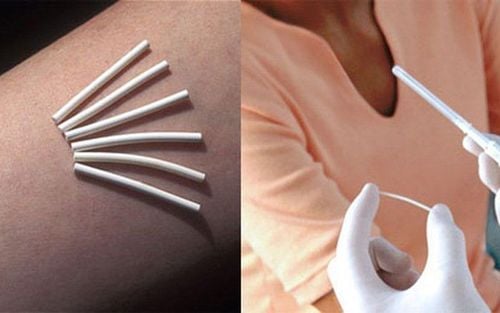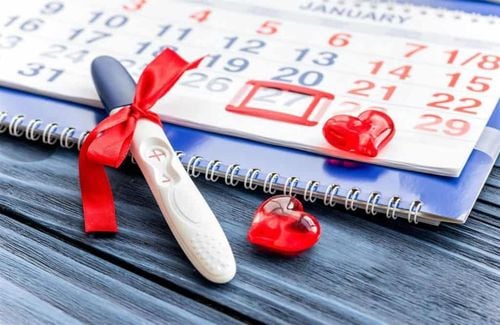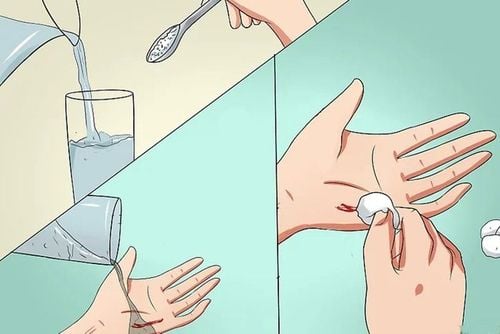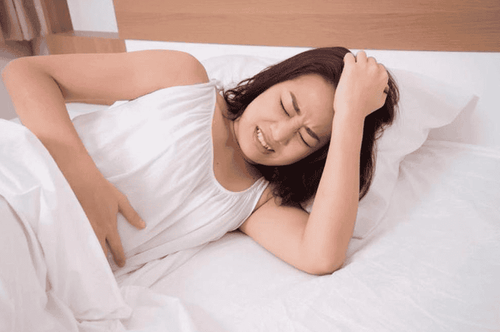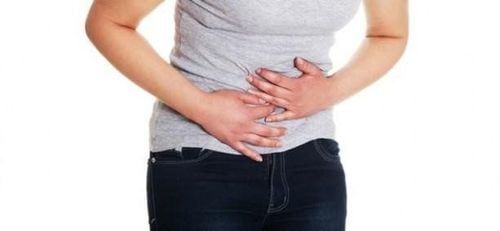This is an automatically translated article.
Dysmenorrhea is pain in the lower abdomen that can occur before or during menstruation. Some people experience only mild cramping during their period. For others, the pain can be severe. Sometimes, it spreads beyond the pelvis and lower back.
1. What is dysmenorrhea?
Dysmenorrhea refers to menstrual pain in the lower abdomen during menstruation without any pelvic macropathy. Abdominal pain is often associated with other symptoms, including sweating, headache, nausea, vomiting, diarrhea, and tremors before or during periods.
The estimated prevalence varies from 45% to 95% of all women of reproductive age. Dysmenorrhea is a major cause of frequent short-term absences from school or work in young women of childbearing age. Women with this condition report that the menstrual cycle has an immediate negative impact on their quality of life.
Pelvic pain can also cause anxiety and depression, which can increase the severity of the pain by 5-7 times.
2. Causes of menstrual pain
Cyclic pain occurs when the muscular wall of the uterus is tightened (contracted). Mild contractions are constantly happening in your uterus, but they're usually so mild that most women can't feel them.
During menstruation, the uterine wall begins to contract harder to help the lining of the uterus shed as part of the period. The contraction of the uterine wall causes the blood vessels in the uterus to constrict. This is the reason the blood and oxygen supply to your uterus is interrupted. Without blood and oxygen, the tissues in the uterus secrete damaging chemicals that cause pain.
It is not known why some women have more menstrual cramps than others. It is possible that some women have a buildup of prostaglandins, which means they have stronger contractions.
3. Why do I often get cramps when I have period pain?
Menstrual cramps occur when the muscles of the uterus contract, usually just before or during menstruation. Those painful contractions are triggered by chemicals called prostaglandins, which are produced in the lining of the uterus. When endometrial cells are broken down during your monthly cycle, prostaglandins are released, which are indirectly related to estrogen.
On the other hand, prostaglandins (and monthly cramps) decrease when you take hormonal birth control because the body doesn't form endometrial tissue.
So why do menstrual cramps cause mild discomfort in some women and discomfort in others? It can be due to a number of factors: like more bleeding in some women, health conditions like adenomas, differences in pain tolerance, and even larger blood clots being pushed through the cervix. bow . Endometriosis can also cause cramping, which can be even more painful than usual. Menstrual cramps can wreak havoc on your abdomen and even your lower back. The pain can range from quite mild to painful.
4. Hot compress to relieve menstrual pain
Heat to relieve menstrual pain is used to relieve menstrual pain for many ages. Hot compresses are helpful because they increase circulation and help relax tight or cramped muscles. When used to relieve menstrual cramps, heat has a similar effect on the uterine muscles, helping them to relax more.
Besides, hot compress also generates heat which leads to increased blood flow to the pain site naturally and this increased blood flow will relax your muscles in that particular area.
Once you know how to use heat to relieve menstrual pain, you can do it yourself at home to help ease the pain gradually.
Vinmec International General Hospital is the address for examination, treatment and prevention of diseases, including women's diseases, obstetrics and gynecology. With a system of modern facilities, a team of dedicated, experienced doctors and convenient medical services will bring satisfaction to customers when using services at Vinmec.
Please dial HOTLINE for more information or register for an appointment HERE. Download MyVinmec app to make appointments faster and to manage your bookings easily.




